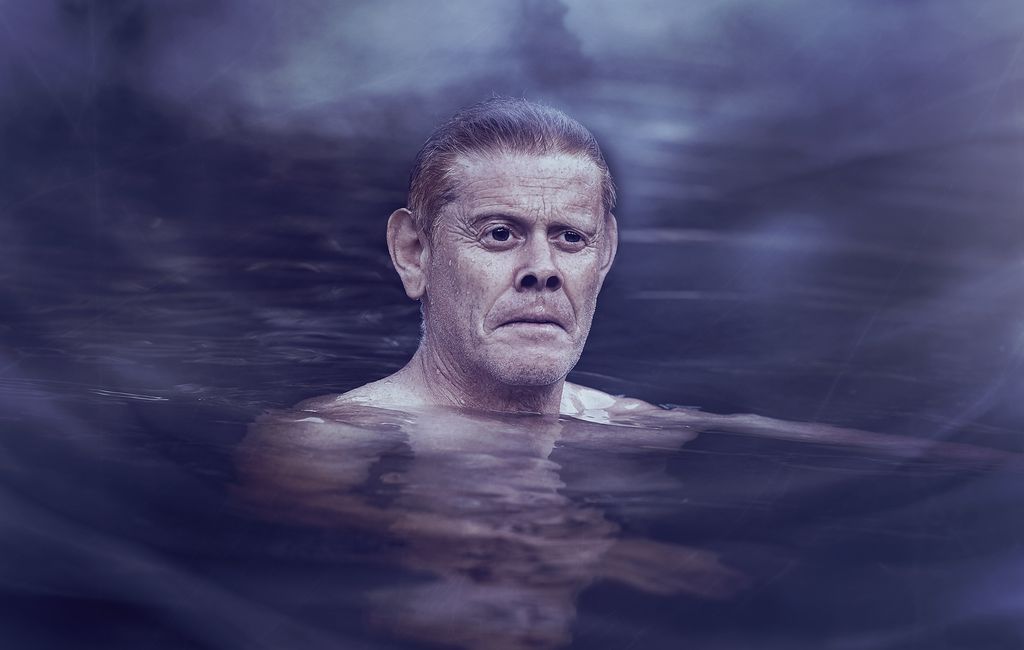
Unlocking the Power of Cold Water Shock Therapy
The Science Behind Cold Water Shock Therapy

Understanding the Body's Response
When you expose your body to cold water, it triggers a physiological response known as cold water shock. This response includes a sudden gasp reflex, increased heart rate, and rapid breathing. These reactions are the body's way of adapting to the cold environment and preparing for the potential challenges it presents.
It's important to note that the intensity of the body's response can vary based on factors such as water temperature, individual tolerance, and previous exposure to cold water. For example, colder water temperatures may elicit a more pronounced response, while individuals with experience in cold water immersion may exhibit a more controlled reaction.
For a more detailed understanding, refer to the table below, which outlines the typical physiological responses to cold water immersion:
| Response | Description |
|---|---|
| Gasping reflex | Sudden inhalation of air |
| Increased heart rate | Acceleration of heartbeats |
| Rapid breathing | Quick, shallow breaths |
Remember, always consult with a healthcare professional before attempting cold water shock therapy, especially if you have any underlying health conditions or concerns. Safety should be the top priority when exploring this therapy.
Benefits of Cold Water Shock Therapy
Cold water shock therapy has been shown to have a range of benefits for both the body and mind. It can help improve circulation, boost the immune system, and enhance muscle recovery. Additionally, cold water immersion has been linked to increased alertness and a reduction in inflammation. Furthermore, it can provide a natural energy boost and improve overall well-being.
- Improved circulation
- Boosted immune system
- Enhanced muscle recovery
- Increased alertness
- Reduction in inflammation
- Natural energy boost
- Improved overall well-being
Tip: Gradually increase the duration of cold water exposure to build tolerance and maximize the benefits.
Risks and Precautions
Understanding the Body's Response
Benefits of Cold Water Shock Therapy
Risks and Precautions
Getting Started with Cold Water Immersion

Choosing the Right Water Temperature
When it comes to choosing the right water temperature for cold water immersion, it's important to find a balance that works for you. Experiment with different temperatures to see what feels comfortable and manageable. Remember, the goal is to challenge yourself, but not to the point of discomfort.
If you're new to cold water therapy, start with temperatures around 10-15°C (50-59°F) and gradually work your way down. Here's a quick reference guide for water temperatures and their effects:
| Water Temperature (°C) | Effects |
|---|---|
| 10-15 | Invigorating and refreshing |
| 5-10 | Energizing and stimulating |
| 0-5 | Revitalizing and invigorating |
Keep in mind that these effects can vary from person to person, so listen to your body and adjust accordingly. Remember, the key is to find a temperature that challenges you while still being safe and enjoyable. Stay tuned for more tips on preparing mentally and physically for cold water immersion.
Preparing Mentally and Physically
Preparing mentally and physically for cold water immersion is crucial for a positive experience. It's important to acknowledge that the initial shock of cold water can be intense, but it's a natural response that your body can adapt to over time. Mentally preparing yourself by focusing on deep breathing and positive affirmations can help ease the transition.
When it comes to physical preparation, it's essential to ensure that you are in good health and free from any medical conditions that could be exacerbated by cold water immersion. Additionally, gradually exposing yourself to colder water temperatures can help your body acclimate and reduce the shock. Remember, safety should always be the top priority.
For a quick reference, here's a simple table to guide you through the process of preparing mentally and physically:
| Mental Preparation | Physical Preparation |
|---|---|
| Deep breathing exercises | Check with a healthcare professional |
| Positive affirmations | Gradual exposure to colder water |
Remember, taking the time to prepare yourself mentally and physically can make a significant difference in your cold water immersion experience. As you continue on this journey, keep in mind that patience and persistence are key. Embrace the process and enjoy the benefits of this invigorating practice.
Safety Tips for Beginners
So, you've decided to take the plunge into cold water immersion. It's important to remember that safety comes first, especially for beginners. Before diving in, make sure to mentally prepare yourself for the shock of the cold water. Take slow, deep breaths and focus on staying calm. Once you're in the water, remember to keep your movements slow and controlled to avoid any sudden shocks to your system.
When choosing the right water temperature, aim for something around 10-15°C to start. This temperature range is cold enough to provide the benefits of cold water therapy, but not so extreme that it becomes overwhelming. As you become more accustomed to the practice, you can gradually decrease the temperature for a more intense experience.
Remember, safety is key. Always have a buddy with you when trying cold water immersion for the first time. This ensures that someone is there to help if you experience any unexpected reactions. Stay safe and enjoy the invigorating experience of cold water therapy!
Maximizing the Benefits

Incorporating Breathing Techniques
When it comes to breathing techniques, it's all about finding your rhythm and staying calm. Focus on deep, slow breaths to help your body adjust to the cold water. Remember, it's not a race, so take your time and listen to your body.
Here's a simple table to track your progress:
| Week | Breathing Exercise Duration (minutes) |
|---|---|
| 1 | 5 |
| 2 | 7 |
| 3 | 10 |
For those who prefer a more visual approach, here's a quick list of breathing techniques:
- Box breathing
- Wim Hof method
- 4-7-8 technique
Tip: Don't forget to focus on your breath and stay present in the moment. It's the key to making the most of your cold water therapy experience.
Combining Cold Water Therapy with Exercise
When combining cold water therapy with exercise, it's important to listen to your body and gradually increase the intensity. Hydration becomes even more crucial, so make sure to drink plenty of water before and after your session. Here's a quick overview of how to optimize your routine:
- Start with a brief cold water immersion after your workout to reduce inflammation and promote muscle recovery.
- Experiment with contrast therapy by alternating between hot and cold water to enhance circulation and boost recovery.
Tip: Remember to warm up properly before exercising in cold water to prevent muscle strain and ensure a safe and effective workout.
Recovery and Rejuvenation
After a refreshing cold water immersion, it's important to focus on recovery and rejuvenation. Take time to relax and allow your body to adjust to the experience. Deep breathing exercises can help to enhance the relaxation process and promote a sense of calm.
For a structured approach to recovery, consider the following table:
| Recovery Techniques | Duration (mins) |
|---|---|
| Deep Breathing | 5 |
| Stretching | 10 |
| Meditation | 15 |
Remember, it's essential to listen to your body and not push yourself too hard. Take it slow and enjoy the rejuvenating effects of cold water therapy.
Cold Water Therapy for Mental Well-being

Stress Relief and Mental Clarity
Cold water therapy can be a powerful tool for relieving stress and gaining mental clarity. The shock of the cold water can jolt your system into a state of heightened awareness, helping to clear your mind and improve focus. It's a natural way to reset and refresh your mental state.
- Stress Relief: Cold water immersion has been shown to reduce levels of stress hormones, providing a sense of calm and relaxation.
- Mental Clarity: Many individuals report feeling more mentally alert and focused after engaging in cold water therapy.
Tip: Take slow, deep breaths during cold water immersion to help calm the mind and enhance the therapeutic effects.
Improving Mood and Focus
Feeling a bit scattered lately? Cold water therapy can help bring back that laser focus and improve your overall mood. The invigorating shock of cold water can jolt your mind into a state of alertness, making it easier to concentrate and stay on task. It's like a natural energy boost that clears away the mental fog.Bonus Tip: Try incorporating deep breathing exercises while in the cold water to enhance the calming and focusing effects. Here's a quick overview of the benefits:
| Benefit | Description |
|---|---|
| Increased alertness | Cold water immersion can heighten mental acuity and sharpen focus. |
| Enhanced mood | The shock of cold water can trigger the release of endorphins, boosting mood and reducing stress. |
| Improved concentration | Cold water therapy can help improve cognitive function and mental clarity. |
Cold Water Therapy for Anxiety and Depression
Cold water therapy can be a powerful tool for managing anxiety and depression. The shock of cold water can help to jolt the mind and body out of negative thought patterns and provide a sense of clarity and focus.
- For anxiety, consider starting with short cold water immersions and gradually increasing the duration as you become more comfortable.
- Practice deep breathing exercises while in the cold water to help calm the mind and reduce anxiety symptoms.
Tip: Remember to always listen to your body and seek professional advice if you have any underlying health concerns or conditions.


